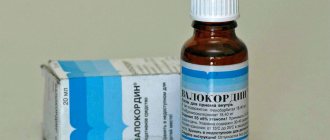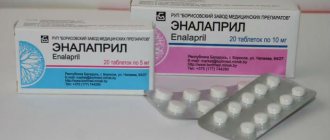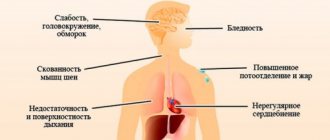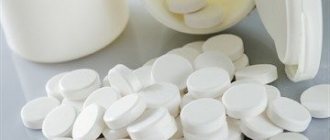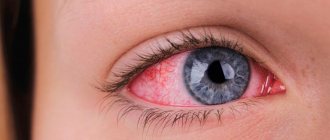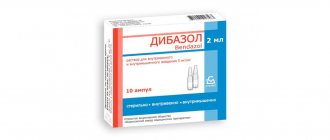Updated: 04/23/2021 15:13:41
Expert: Abramova Tsilya
No person is immune from high blood pressure. Severe stress, unusual physical activity, a sudden change in climate - and now your head is pounding, and the mark on the blood pressure monitor is inexorably creeping up. Such a nuisance can happen even against the background of complete health. So what can we say about those for whom hypertension is a diagnosis recorded in the medical record? This category of patients cannot do without antihypertensive drugs - effective, reliable and safe drugs that can lower blood pressure and prevent the development of a crisis.
Various drugs are used in the treatment of hypertension and other concomitant pathologies of the cardiovascular system. Among them, two products deserve special attention - Andipal and Capoten. They are more often found in the first aid kit of hypertensive patients. Many people are hesitant to leave the house without an emergency pill. But are these products as good as they say?
Andipal and Capoten are drugs that lower blood pressure. This is where the similarity between the funds under consideration ends. The experts of our magazine studied the composition of antihypertensive medications, reviewed the clinical studies conducted and found that their composition and principle of action are radically different. We found that, according to modern concepts, Capoten is more often prescribed in the treatment of hypertension. Andipal is gradually becoming a thing of the past, and its use for high blood pressure is not always justified. Let's figure out why this happens and why cardiologists prefer Capoten.
What is inside? Let's compare the composition of the drugs
Andipal is a combination drug. It belongs to the group of antispasmodic analgesics. It contains the following components:
- bendazole (20 mg) – vasodilator;
- metamizole sodium (250 mg) – analgesic and antipyretic;
- papaverine hydrochloride (20 mg) – antispasmodic;
- phenobarbital (20 mg) is a psychotropic drug.
Such a complex composition explains the fact that Andipal is used for various pathological conditions and is used not only for hypertension. We will consider each of these substances in more detail below.
Capoten is a monocomponent drug. It belongs to the group of ACE inhibitors (angiotensin-converting enzyme). The active ingredient is captopril (25 mg). No other components are stated in the drug.
Both drugs are available in tablets. Available in pharmacies without a doctor's prescription. The cost varies depending on the region. On average, a package of Kapoten will cost 250-350 rubles (56 pcs.). Andipal is cheaper - 10 tablets cost only 9-12 rubles.
How do they work?
So, before us Andipal and Capoten are such different drugs. They differ in composition and price, but are used for one purpose - to lower blood pressure. Let's figure out together how these drugs work and why they are used in the treatment of hypertension.
Andipal
The action of Andipal is due to its constituent components:
- The vasodilator bendazole dilates blood vessels. The lumen of the blood vessel becomes larger, resistance to blood flow decreases, and blood pressure drops. Bendazole also relaxes the smooth muscles of internal organs and facilitates the transmission of nerve impulses in the spinal cord.
- Metamizole sodium is claimed to be an analgesic and antipyretic. It effectively relieves pain, including that arising from vasospasm with high blood pressure. It acts on elevated body temperature and brings it back to normal. In Russia, this component is known as analgin.
- Papaverine hydrochloride is an antispasmodic. It affects the smooth muscles of internal organs - primarily the digestive tract, genitourinary and respiratory systems. Papaverine also affects blood vessels - it relaxes, expands the lumen, and facilitates blood flow.
- Phenobarbital is a psychotropic substance. It is classified as a narcotic drug and is subject to special control. It has a pronounced sedative effect - calms, puts you to sleep.
- The components in Andipal were not chosen by chance. Two antispasmodics, papaverine and bendazole, work more effectively together. They also enhance the effect of metamizole sodium, which is especially important for severe headaches. Phenobarbital also acts as a catalyst for other components of the drug. Together, these components act on small blood vessels - arterioles. They relax the tone of their walls, expand the lumen, improve blood flow, reduce pressure and increase the supply of oxygen to the heart.
- Andipal is a drug that does not have a direct hypotensive effect. It affects not only blood pressure, but also other processes occurring in the body. This fact is especially emphasized by practicing cardiologists, because the effect of taking the drug can be unpredictable. What better way to prescribe a narrow-spectrum agent and get a clear and predictable result.
Kapoten
Captopril in the drug suppresses the production of angiotensin II. This hormone is synthesized in the adrenal cortex. Once in the bloodstream, it causes vasoconstriction. Captopril reverses the effects of angiotensin, which leads to dilation of arteries and veins, as well as other effects:
- reduces peripheral vascular resistance;
- reduces the load on the heart and pulmonary circulation;
- reduces the synthesis of aldosterone in the adrenal glands.
All this leads to a rapid decrease in blood pressure. Capoten acts within 15-30 minutes after administration. The maximum effect is observed after 1.5 hours.
The beneficial effects of captopril have been confirmed by numerous clinical studies. One of them indicates that taking the drug reduces mortality among people suffering from cardiovascular diseases. The medical literature especially emphasizes the fact that the effect of captopril is dose-dependent and controllable. In this way, it compares favorably with Andipal, when used, it is difficult to predict the complex effect of all components on the human body.
Practicing cardiologists evaluate captopril in Capoten as a very promising remedy. Scientific work confirms that the drug not only lowers blood pressure, but also, when taken in a course, triggers the reverse development of the pathological process. This normalizes the daily rhythm of blood pressure, improves the patient’s general condition and reduces the risk of developing complications of hypertension and myocardial infarction and stroke.
"Papazol": description and characteristics
The product is produced in the form of tablets, which contain 2 active ingredients: papaverine in the form of hydrochloride and bendazole (each weighing 0.3 g per tablet). The composition also contains auxiliary components - starch, talc and stearic acid.
Packaging – plastic jar or cardboard box, each containing from 10 to 60 pcs. The product can be purchased at any pharmacy without a prescription. Should be stored in a dark place at room temperature (no more than 30 degrees) within the total shelf life of 5 years from the date of production.
The drug is an antispasmodic; the active components dilate blood vessels, making it possible to stabilize (lower) blood pressure. Thus, papaverine reduces the physical resistance of the inner surface of blood vessels and neutralizes the action of the phosphodiesterase enzyme. The intracellular calcium concentration decreases, which leads to the accumulation of AMP.
This promotes a vasodilator effect, i.e. dilation of blood vessels, increasing their volume. Papaverine also leads to the elimination of spasms in the biliary tract, ureters, and ECT organs, which leads to a weakening or complete relief of pain.
Bendazole affects specific smooth muscle receptors lining the walls of blood vessels. It also eliminates spasms, which leads to lower blood pressure and a decrease in calcium concentration in cells.
Bendazole acts on the spinal cord, stimulating its work. If you take the drug for a long period, the immunomodulatory effect will be noticeable - strengthening the immune system, synthesis of antibodies, destruction of infectious agents.
Thus, “Papazol” has a complex effect on the body:
- decreased blood pressure (vasodilator effect);
- strengthening the immune system;
- vasodilation;
- preventing spasms;
- weak sedative effect (if taken in large doses).
Each pill has its time, or when the drugs are prescribed
Capoten is the only representative of ACE inhibitors that is used for emergency treatment in hypertensive crisis. It acts quickly and can be prescribed when there is a sharp rise in blood pressure. Capoten is the drug that every hypertensive patient should have in their first aid kit. The rapid development of the effect is extremely important for the prevention of dangerous complications of hypertension - stroke and myocardial infarction.
According to the recommendations of leading Russian cardiologists, captopril is also prescribed for course treatment of the following conditions:
- arterial hypertension, including those associated with kidney pathology;
- cardiac ischemia;
- chronic heart failure;
- condition after myocardial infarction;
- diabetic nephropathy.
Andipal is not claimed to have a direct antihypertensive effect. It acts rather as an analgesic and antispasmodic against the background of certain conditions:
- arterial hypertension;
- impaired blood flow in the brain;
- diseases of the digestive tract.
Andipal acts more slowly and is not used when blood pressure rises sharply to high levels. In practice, this drug is usually prescribed in the treatment of mild forms of hypertension - with 1 degree arterial hypertension. Cardiologists do not use Andipal for grades 2 and 3 of pathology severity, as well as in the presence of concomitant severe heart and vascular diseases. It is not recommended to take the medicine for more than 10 days in a row - this increases the risk of complications.
The intermediate result is:
Capoten directly affects the mechanisms of increasing blood pressure and eliminates them. Andipal affects only some parts of hypertension, relieves the symptom (high blood pressure), but does not eliminate the cause of its occurrence. In the long term, the Capoten effect will be more noticeable.
Medications to take regularly for panic attacks
Constant use of pharmacotherapy allows you to stabilize the biochemical and physiological processes in the nervous system that are responsible for the development of panic attacks.
Basically, such drugs act on specific receptors in the brain and restore the normal activity of neurotransmitters: dopamine, serotonin, norepinephrine, adrenaline, acetylcholine and others.
Antidepressants
Mainly affects serotonin receptors of the nervous system. They are used in courses of several months (from three to more than a year). The most “popular” and common antidepressants for preventing panic attacks:
- Escitalopram (cipralex, elicea);
- Paroxetine (Paxil);
- Amitriptyline;
- Sertraline (Zoloft);
- Fluvoxamine (fevarin).
Neuroleptics
They act predominantly on dopamine receptors in the brain. Prescribed in cases where panic attacks are a manifestation of an endogenous disease. Like antidepressants, they are taken for a long time from several months to several years.
Contrary to popular belief among people with anxiety disorders, they do not cause addiction. The most commonly used antipsychotics for long-term treatment of panic attacks are:
- Thioridazine (Sonapax);
- Sulpiride (eglonil);
- Quetiapine (Seroquel);
- Risperidone (rispolept);
- Flupenthixol (fluanxol).
Normotimic drugs
Their mechanism of action is the normalization of the ratio of excitation and inhibition processes in the brain. Most effective for panic attacks due to encephalopathy, consequences of traumatic brain injuries, strokes, and hypoxia.
The most common representatives of normotimics:
- valproic acid (Depakine Chrono),
- lamotrigine (Lamictal),
- carbamazepine (finlepsin).
To summarize, it can be noted that among the above-listed medications there are several drugs with a universal effect: they are suitable both for a single dose to quickly relieve a panic attack, and for long-term use. These are the antidepressant amitriptyline and the antipsychotics quetiapine, thioridazine and sulpiride.
This material is for informational purposes only. Under no circumstances should you use the medications described above for panic attacks on your own. Any use of the drug should only be as prescribed by a doctor! Don't self-medicate!
How to take it correctly?
Andipal is prescribed orally, preferably after a meal. The daily dosage of the drug is divided into 2-3 doses depending on the severity of the patient’s condition. The dose prescribed by the doctor cannot be changed.
Capoten is also taken orally after meals. If there is a sharp rise in blood pressure, you need to carefully chew or dissolve one tablet - this way captopril penetrates faster into the blood through the mucous membranes. Practical experience shows that after 20 minutes the pressure decreases by 15%, by the end of the first hour - by 20%. If the effect is not too noticeable, you can take another tablet after an hour. If in this case the drug does not help, consult a doctor as soon as possible.
For course treatment, Capoten is prescribed 2-3 times a day. Taking the drug begins with a minimum dose - usually ½ tablet. If necessary, the dosage is gradually increased to the point at which the pressure remains within normal limits. In old age and with severe kidney disease, a lower dosage of the drug is usually used.
On a note
Foreign clinical guidelines clearly state:
Antihypertensive drugs must be taken together with statins, drugs that lower cholesterol. Statins cleanse blood vessels and regulate lipid metabolism. In hypertensive patients, cholesterol levels should not go beyond the age norm.
How are they transferred?
Andipal cannot be called a safe drug. Health risk is determined by its components:
- Metamizole sodium, also known as analgin, is prohibited for use in many countries around the world. While taking it, there is a high risk of developing agranulocytosis, a condition in which the number of all blood cells sharply decreases. The patient may die from infection and bleeding. Since 2009, in Russia, metamizole has been excluded from the list of vital drugs, but still remains on the market and is used for some conditions.
- Phenobarbital inhibits the activity of the central nervous system. It is classified as a narcotic drug and is prohibited for import into some countries of the world. Long-term use leads to mental retardation. It becomes addictive after 2 weeks of use.
- Antispasmodics (papaverine and bendazole) do not seem so dangerous compared to the other components, but they can also cause unwanted reactions. Most often, there is a disorder of the digestive tract - abdominal pain, constipation.
- Another danger of Andipal is an uncontrolled decrease in blood pressure. Taking the drug can lead to hypotension, attacks of dizziness, and loss of consciousness.
Capoten is better tolerated and less likely to cause adverse reactions. While taking it, the following conditions may occur:
- heart rhythm disturbances and tachycardia;
- dyspnea;
- skin itching and rashes;
- drowsiness or insomnia;
- dizziness;
- nausea, vomiting and abdominal pain;
- peripheral edema.
Capoten's effect is dose-dependent - the more tablets taken, the lower the pressure drops and the more often unwanted reactions occur. To reduce the risk of complications, you need to take the drug strictly according to the instructions and not change the dosage without permission.
Contraindications and side effects
In some cases, taking the drug is limited or completely eliminated:
- children during the first year of life;
- chronic kidney disease;
- liver pathologies;
- hypothyroidism;
- significant deterioration of intestinal motility;
- epilepsy;
- depression of the respiratory system;
- certain pathologies of the representative gland;
- individual intolerance, manifestation of allergic reactions.
During pregnancy and breastfeeding, the drug is taken with caution and only in consultation with a doctor. Clinical studies on the effect of Papazol on the development of the fetus and child have been conducted in insufficient quantities, so there is no clear data. Moreover, judging by the reviews of many women, taking the drug during pregnancy is safe.
If the patient has previously suffered a traumatic brain injury, he should also take the drug only after the doctor's permission. Side effects are rare, but not excluded. In some cases, patients complain of pain in the heart area, constipation, nausea, and increased sweating. Itching, redness and other allergic reactions are also possible.
conclusions
Let's summarize:
- Andipal is not a drug that directly affects blood pressure. It relieves symptoms and relaxes blood vessels due to its multidirectional effects on the body. Kapoten influences the mechanisms of development of hypertension and specifically reduces blood pressure.
- Andipal acts slowly and is used only for moderate increases in blood pressure. Capoten works quickly and is used as a first aid remedy for hypertensive crisis.
- Andipal is poorly tolerated, causes severe adverse reactions and is prescribed only for a short course. Capoten can be used long-term in the treatment of hypertension and related conditions.
- Andipal is cheap, familiar and understandable. For many years, hypertensive patients have been using this drug to relieve unpleasant symptoms and often do not even try to find another remedy that is convenient, effective and relatively safe. Capoten may be a good alternative in the treatment of arterial hypertension. He copes well with the task and it is no coincidence that he has received recognition from cardiologists. But the final choice of drug is determined by the doctor. Do not try to treat yourself - it can be life-threatening.
